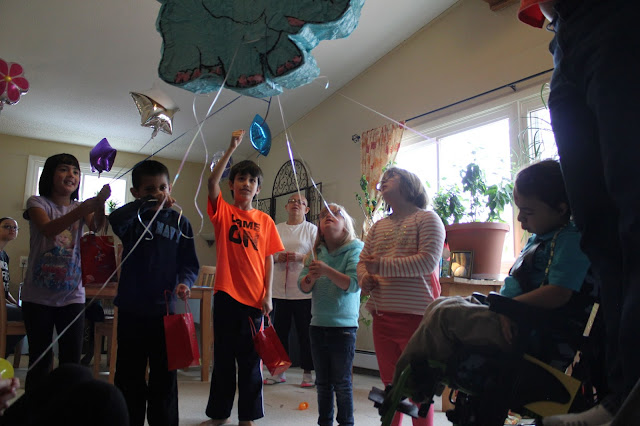A Child in Our Midst
This meditation was written by my brother Arturo for my son Caleb's memorial service and translated by my friend and co-worker Rachel Herring. Thank you both.
A CHILD IN OUR MIDST
Matthew
18 1 At that time the disciples came to Jesus and
asked, “Who, then, is the greatest in the kingdom of heaven?” 2 He called a little
child to him and set him in the midst of them. 3 And
he said: “Truly I tell you, unless you change and
become like little children, you will never enter the kingdom of heaven.
Jesus is not inclined to give easy answers. We tend to
trivialize the disciples’ questioning of Jesus about who is most important in
the kingdom of heaven, as though it were a superficial question, an expression
of their egoism and self-interest. This is a mistake. The question is a deeper,
and important, one. It’s a question of defining the nature of relationships in
the new, longed-for reality of the kingdom of heaven. It’s a question of
understanding how each of us will live within that kingdom—what role each will
play. Jesus’s answer isn’t an easy one: He takes a child, He places it in the
midst of them, and He warns that living in this new reality will require a
transformation.
I am sure that today there are many questions about
life, about death, about Caleb. Once again, the answers are neither simple nor
easy. In the face of all these questions, Jesus answers by, once more, placing
a child at the center.
God put Caleb in the midst of our lives, and required us
all to change, to transform. We had to learn that not all lives are lived in
the same way. That there are different ways of living, of being, of loving. We
had to transform our faith as well, moving from the God of doctrine to the God
of the everyday, the God who dries our tears and laughs with us, the God who
sometimes speaks up and is sometimes quiet, but is always there.
God put Caleb in our midst and we had to transform our
words, to learn a new language that only he could teach us. We had to transform
our sleep schedule, our house, our pantry.
God put Caleb in our midst, and he turned us upside
down—but there are some things that we can only see when upside down. Don’t
believe me? Have you ever seen the sky smile? Next time you see a rainbow,
stand on your head, upside down, and you will see that God’s covenant was
sealed with a colorful smile. Caleb changed our way of seeing, of
understanding, and of not understanding. A child in our midst required a
transformation of our hearts.
Today, another transformation is required of us. We
must learn to live without him. We will continue to live with his love, with
memories of him, with all that he taught us, but without his physical presence.
We have to learn to wait; to wait in a different way, but, still, to wait.
In his first letter to the Thessalonians, Paul writes of “we
who are alive, we who are left.” Today, we are left. Maybe we are still
questioning, and maybe Jesus will continue answering with “until you change and become like little children, you
will have understood nothing.” My prayer today is that, even though we may not
have answers, we have learned to love like God loved us through Caleb—to begin
to live into new relationships of the kingdom of heaven.
In the meantime, Caleb is at home with his
heavenly family, where there are no hospitals, no children who die after only a
few days, and where the sea of fear and tears is no more. Caleb is at home,
with his Abba, and in the midst of his own. And let us remember—when a child
comes home, there is always a celebration.




Most beautiful. 💓
ReplyDeleteBeautifully written💙
ReplyDelete